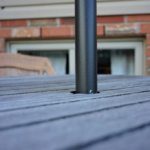In an age of curated feeds, filtered selfies, and highlight reels, we’re caught in a digital landscape that has a profound impact on our well-being. Social media, designed to connect us, ironically fuels a hidden epidemic of anxiety, depression, and declining mental health. Let’s unravel how social media takes a toll and, more importantly, empower ourselves with tools to promote healthier online engagement.
The Mechanisms of Mental Harm
- The Comparison Trap: As we scroll, the idealized lives of others seemingly unfold before our eyes – perfect vacations, flawless bodies, enviable relationships. It’s easy to fall into the trap of comparing our own behind-the-scenes reality to someone else’s polished online image. This constant comparison fuels dissatisfaction, inadequacy, and a warped sense of self.
- Cyberbullying & Online Harassment: The anonymity and reach of the internet provide a breeding ground for cyberbullying. Cruel comments, spreading rumors, and targeted harassment leave emotional scars, particularly damaging young people’s self-esteem and sense of safety.
- Fear of Missing Out (FOMO): Seeing curated snapshots of everyone’s exciting plans and social lives can trigger FOMO. This gnawing feeling that we’re constantly missing out leads to heightened anxiety, dissatisfaction with our own lives, and a compulsive drive to stay plugged in.
- Doomscrolling and Negative News: Social media feeds can resemble a never-ending barrage of negative news and polarizing opinions. Constantly consuming upsetting content takes a toll, increasing anxiety, hopelessness, and a distorted view of the world.
Also check: Understanding Anxiety Disorders
The Warning Signs
The mental health impact of social media can be subtle and insidious. Pay attention to these red flags:
Increased anxiety and worry: Are your thoughts racing after using social media?
- Explanation: Social media can overload us with information, comparisons, and a sense of urgency. This overstimulation triggers the release of stress hormones, leaving us feeling anxious and on edge even after we log off.
- Example: After scrolling through posts about friends’ job promotions and exotic travels, you start having intrusive worries about your own career path or finances. These anxieties persist, making it hard to relax or concentrate on other things.
Low mood and feelings of sadness: Does social media leave you feeling down or drained?
- Explanation: Constant comparison to others’ seemingly perfect lives can make us feel inadequate, fostering sadness and dissatisfaction with our own circumstances. Additionally, exposure to negative news or online arguments can leave us feeling emotionally depleted.
- Example: Browsing posts of friends hanging out without you leads to feelings of loneliness and low mood. You may start questioning your friendships or your own self-worth.
Disrupted sleep: Does checking your phone before bed interfere with your sleep?
- Explanation: The blue light from our devices suppresses melatonin, a hormone that regulates sleep. Social media also activates our brains with stimulating content, making it difficult to wind down and fall asleep. This leads to poorer sleep quality and feeling chronically tired.
- Example: After scrolling through social media right before bed, you find yourself tossing and turning with racing thoughts, unable to fall asleep for a long time.
Difficulty concentrating: Has social media reduced your attention span?
- Explanation: Social media trains our brains to crave quick hits of information and constant change. This can make it harder to focus on tasks that require sustained attention, such as reading a book or having an in-depth conversation.
- Example: While trying to study or work, you find yourself constantly itching to check your phone for updates and notifications, leading to frequent distractions and less productive output.
Social withdrawal: Do you find yourself favoring online interaction over real-life connection?
- Explanation: The ease and convenience of online interaction can sometimes become a substitute for face-to-face connection. When we get more validation and social satisfaction from likes and comments than from real-life relationships, we risk becoming socially isolated.
- Example: You’d rather stay in and scroll through Instagram than accept an invitation to a party or a meetup with friends. You may feel less comfortable in real-life social settings and crave the more controlled environment of online interactions.
Strategies for Self-Protection
It’s possible to strike a healthy balance in your relationship with social media. Here’s how:
- Take a Digital Detox: Schedule intentional breaks. Start small – an hour here, a day there – gradually increasing the duration. Notice how your mood and focus shift during this offline time.
- Practice Mindful Scrolling: Don’t just passively consume content. Ask yourself, “How does this post make me feel?” If the answer is negative, unfollow or mute the source.
- Cultivate a Positive Feed: Surround yourself with accounts that inspire, educate, and uplift you. Limit exposure to profiles that make you compare and despair.
- Turn Off Notifications: Reclaim control over your attention. Disable unnecessary notifications that lure you back into apps and disrupt your focus.
- Set Time Limits: Use app timers or phone settings to establish limits on social media usage. Resist the urge to check devices first thing in the morning or right before bed.
- Prioritize Real-Life Connection: Invest in face-to-face interactions, shared activities, and meaningful conversations. The human connection is irreplaceable and vital for mental well-being.
- Practice Self-Compassion: Challenge negative self-talk fuelled by social comparison. Remind yourself that everyone has struggles not visible in their social media posts.
Also check: The Role of Sleep in Mental Health
When to Seek Professional Help
If social media-induced anxiety, depression, or other mental health challenges significantly impact your daily life, it’s time to seek professional support. A therapist can help you understand the root causes and develop personalized coping mechanisms.
Resources
- Crisis Text Line: Text HOME to 741741 (US) or visit [crisistextline.org]
- The Trevor Project (LGBTQ+ Youth): 1-866-488-7386 or [thetrevorproject.org]
- National Alliance on Mental Illness (NAMI): [nami.org]
Conclusion Social media doesn’t have to control us. By recognizing its potential harms and implementing conscious strategies, we can curate a healthier online experience. Remember, comparison is the thief of joy. Your real life, with all its imperfections, is where genuine happiness and connection reside.









